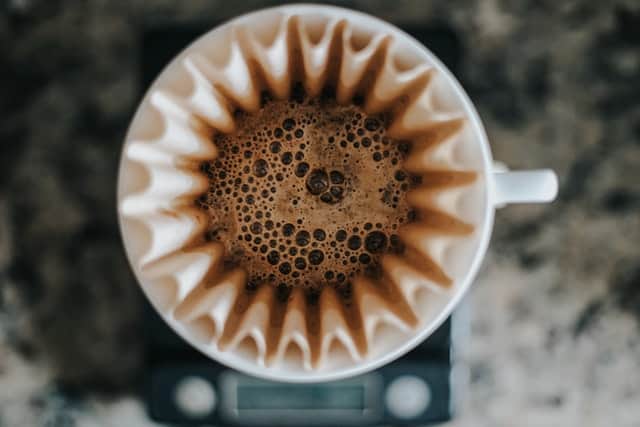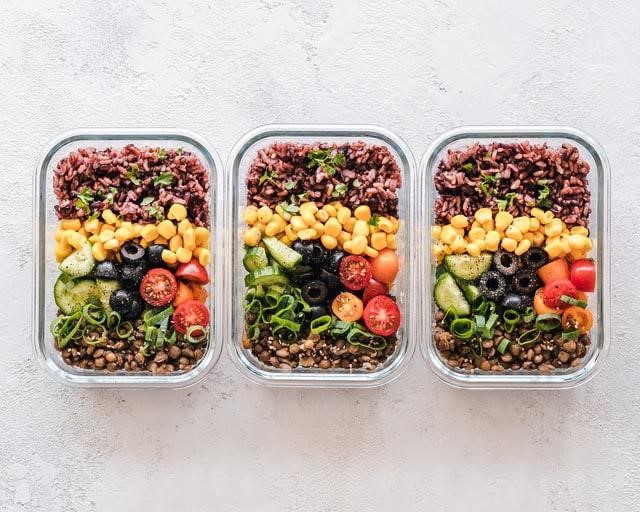
Coffee has been one of our favourite non-alcoholic beverages for generations. People love this bitter, yet strangely pleasantly beverage so much that the average global consumption up until 2020 reached more than 400 billion cups annually.
Since its earliest discovery, allegedly in Ethiopia and later through independent discovery or importing in other countries, the variety of coffees has increased manifold. But even today, in the dazzling arrays of lattes, Frappuccinos, and even coffee-infused alcoholic drinks, there are plenty of people who prefer a good cup of black coffee.
According to a website’s statistic gathered by their staff, about 35% of coffee consumers often drink black coffee. Although many people choose to go black because of its extremely low calories, with only 1 kcal in an 8 oz cup, there are plenty of bonuses in taking your coffee black.
Of course, if you take your coffee with milk or another creamer without (or with minimal amount of) sugar, that is still a pretty healthy drink. But for you folks out there struggling with diabetes, thus may be avoiding dairies or other creamers served at the coffee shops which tend to be sweetened, let’s focus on the coffee itself which is always black.
We know coffee is tasty and wakes you up in the morning, and in moderate amounts is good for your gut health, but how good is coffee for those of you with diabetes or concerned with risks for diabetes? That is the topic of this blog post.
Relationship between caffeine and diabetes: Complicated

When it comes to coffee and diabetes, the research on them is the definition of complicated. Coffee may damage your insulin sensitivity, but but it depends on how used to coffee you are; sometimes they found there is no link between coffee and insulin; some say caffeine can help prevent diabetes, but some others found both regular and decaf had this same effect. What a headache. But for the sake of truth and clarity, let’s dive in.
In a 2004 study, the researchers found that introducing caffeine to healthy people who did not habitually drink it had an adverse effect on their insulin levels. To be more specific, although the caffeine intake did not influence the production of insulin, the study did find a decreased level of insulin in the bloodstream after the participants drank coffee for a month.
The researchers concluded that this effect must’ve been due to an influence on the organs’ insulin sensitivity.5 This does not sound like a great news for diabetics, but even if you are currently drinking coffee, it doesn’t seem like you need to worry too much.
The same group of researchers also reported an increase in tolerance to the adverse effect of caffeine on blood insulin levels for long-term, habitual coffee drinkers. Take note that they did not find any benefits as far as insulin is concerned, but rather a neutral effect—that is, for habitual drinkers, caffeine had no effect on their insulin activities.
Okay, so caffeine seems like a bad news if you are diabetic and not a coffee drinker, and not even a news if you are a coffee drinker because your tolerance has built up. What about decaf coffee? Surely in a complex compound substance like coffee there are other things effecting on your body, right?
As it turns out, this intuition is onto something. But the effect of decaf coffees doesn’t seem to concern benefits or drawbacks for those who are suffering from diabetes. Rather, it seems to be about prevention against risks of developing diabetes.
In a meta-analysis conducted in 2014, the researchers found that both caffeinated and decaffeinated coffee had a risk-reducing effect on diabetes. What’s interesting is that caffeine did not seem to be the acting agent that invoked this effect, for they did not find a difference between the preventive effects of regular and decaf coffee.
If you are a coffee drinker looking out for diabetes risk while also wondering if your current amount of coffee intake is healthy, scientists may provide you an answer…partially. The scientists were curious if the amount of coffee people drank would determine how protected they were from diabetes, so they tested it out, and their results were gathered in the 2014 meta-analysis mentioned above.
By calculation, the researchers found a dose-respondent effect of coffee when it comes to reducing risk for diabetes. That is, the people who drank more coffee per day were more protected from dangers of getting diabetes. This tracks with their finding that both regular and decaf coffees had the same effects in reducing diabetic risk, for the more frequently you drink, the higher your tolerance to caffeine, the more coffee you need to experience its effects; so if the diabetes-risk-reducing effect increases with more cups of coffee consumed, caffeine is not the active agent.
A more recent study published in 2017 focused on the mechanisms behind coffee’s type 2 diabetes preventive benefits. From the research report, it looks like the beneficial effects of coffee come from multiple sources, including antioxidant activities, anti-inflammation, and homeostasis. But, “The dose makes the poison.” Caffeine, though widely accepted, is a drug, and just like the illicit drugs, caffeine overdose can cause great troubles.
So, although coffee may help you prevent diabetes, don’t overdo it and ruin other aspects of your health, specifically in your brain. All in all, for the healthy people, you may rest assured—your daily coffee routine not only helps you stay awake, it is also helping you stay away from diabetes.
For those who are already struggling with diabetes, do not introduce coffee into your routine, for it could be bad for your already compromised insulin levels. But for the long-term caffeinated diabetics out there, you can also rest assured—it looks like coffee doesn’t really care much about your insulin levels. That said, there are some caveats of how to take your coffee that warrant some reminding.
How to take your coffee

As mentioned at the beginning of this article, there are probably hundreds, if not thousands, of ways to take your coffee. But not all coffees should be taken equally if you are diabetic or looking to prevent diabetes.
Beware of sweeteners
First of all, there are multitudes of ways to flavour your coffee these days including artificial sweeteners, and almost all of them may spike your blood sugar level. One of the most popular condiments for coffee is artificial sweeteners. Note that the main feature of these products is low calorie, not zero effect on blood sugar. In fact, research has shown that they raise your blood sugar levels potentially more than regularly sugared products.
But, the good news is, you don’t need to live in forever bitterness if you aren’t a fan of the black coffee. Stevia, made from the extracts of stevia rebaubiana, has been shown to have virtually no effect on glucose, lipid, and insulin levels in the bloodstream. However, as the research isn’t exactly well-established, as always, call your doctor first before tearing open that little green packet to add to your morning coffee.
Beware of flavours
Yes, flavours can be enemies. Especially in the coffee world. All those flavoured beverages in coffee shops are all made from artificial additives infused into sugar syrups. So when you go to a cafe, make sure you ask what exactly are they using to flavour your drink.
Beware of nondairy products
Not that there’s anything wrong with nondairy creamers in your coffee, but almost all of the coffee shops serve unsweetened versions. For example, all four of the nondairy substitutes at Starbucks, from soy milk to oat milk, are all sweetened.
Some of you might have been told by the doctors to steer clear of the dairies, but they probably didn’t mean at the expense of a bunch of added sugar. So make sure to ask your barista if their nondairy milks are sweetened the next time you want a steamy latte.
In conclusion, coffee, in general, seems to be one of the more healthy beverages you can get pretty much everywhere. It is rich in antioxidants and has diabetes-preventing properties that are apparently unrelated to caffeine, according to research to date.
While for those already living with diabetes, an introduction to the pleasantly bitter beverage could be a bad idea, for those who has been warned to take preventive measures, it could be a new staple in your dietary regime. That said, caffeine is a drug, and any drug taken in large amounts is a poison. The Mayo Clinic recommends about 4 eight-ounce cups of brewed coffee at a maximum. One cup of brewed coffee is roughly a double shot of espresso.
Although the diabetes-preventive effects goes up with each additional cup, it is best to stay within 3 tall cups (a tall size is 12 oz) of coffee if you are ordering from Starbucks (other sellers probably serve comparable sizes). If you’re hesitating to add coffee to your new diabetes-preventive diet plan as extra energy boost, struggle no more—get up and go grab that cup of joe…But don’t do it more than three times a day, please.
And just to be safe, start with (or convert to) black. You might like it.





